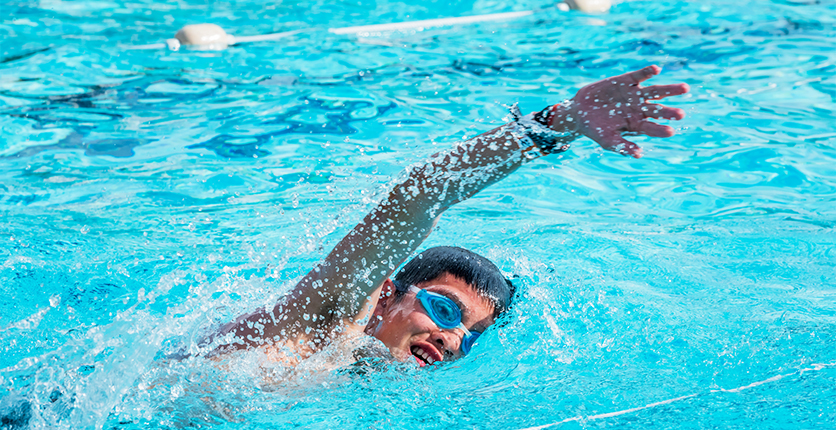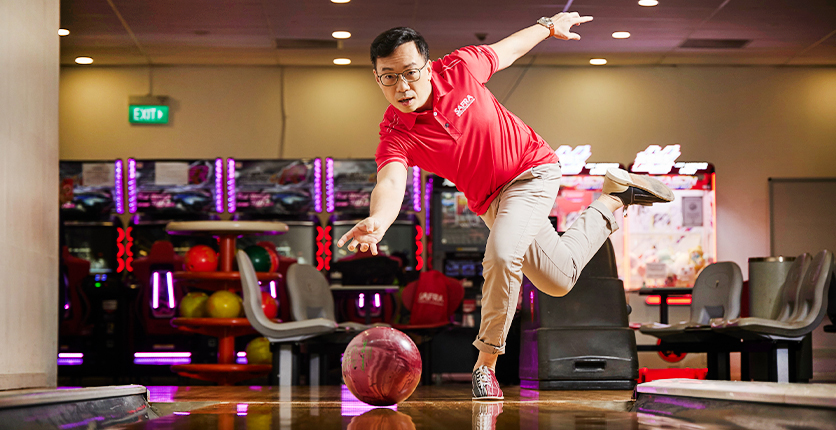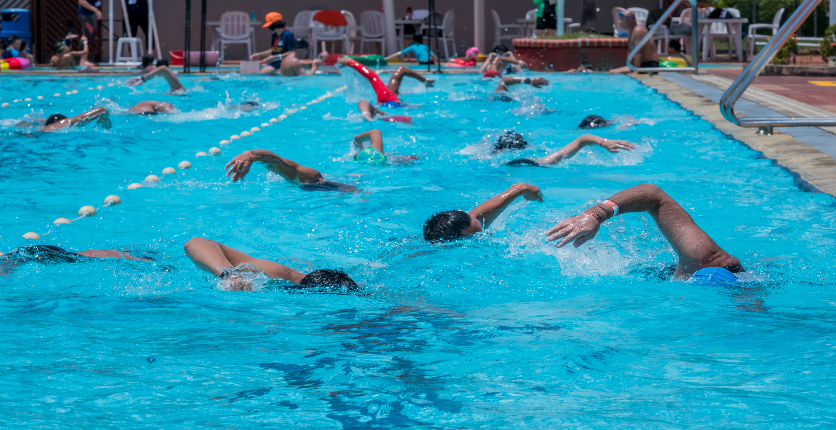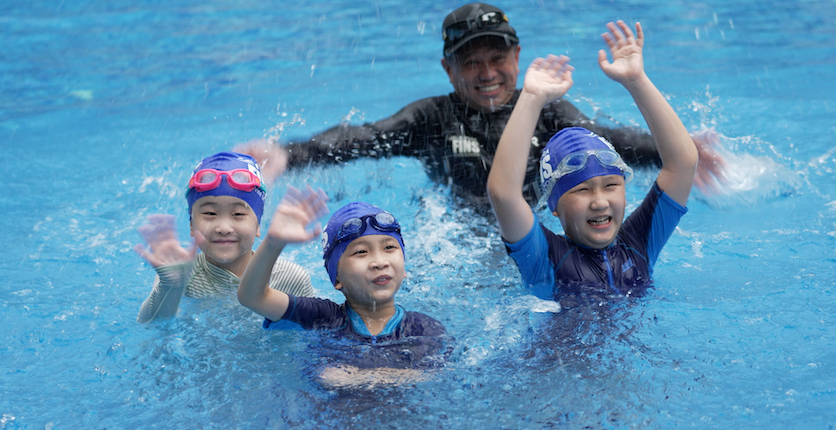If there are a few things good swimmers have in common, it’s endurance, perseverance, mental strength, focus, flexibility, efficiency, great technique, and being able to hold their momentum, no matter what they encounter in the water. When all these qualities are present, a swimmer is likely to move faster and smoother and with greater ease.
But swimming isn’t just about pushing yourself to the limit and challenging yourself to improve your performance each time. It’s also an excellent way to keep physically and mentally healthy.
Whether you do it competitively or recreationally, swimming, which works the heart, lungs and muscles, has been shown to regulate breathing, boost our blood circulation, reduce stress, and release “happy hormones” such as endorphins and serotonin. It also provides an all-over body workout so it can help you lose weight or maintain a healthy weight, help with posture, balance and coordination, and build cardiovascular fitness.
So how can you improve your performance as a swimmer? SAFRA FINS Swim School’s Assistant Head Coach, Seow Jianhao, and Head Coach Emir Hamza Ali, offer their expert tips for perfecting your technique and increasing your stamina while you train.
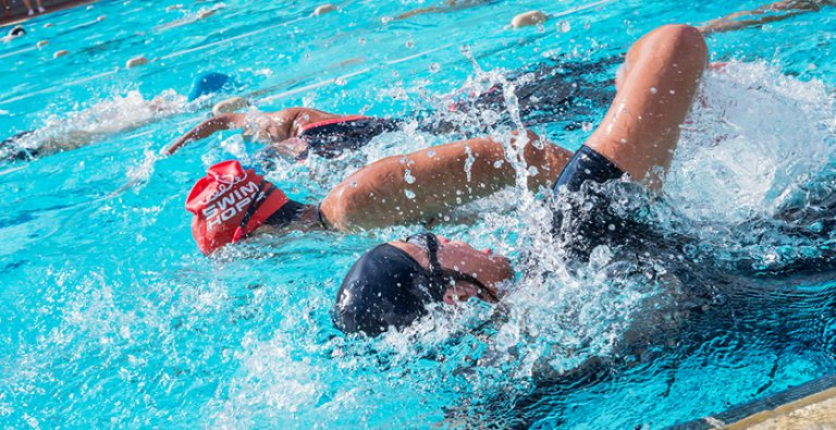
Q: What is considered a good swimming technique?
Jianhao: A good swimming technique is one that allows you to propel in the direction you want to move in without becoming exhausted too quickly. You can achieve this by creating as little drag, or resistance, as possible in the water, while executing various strokes and maintaining proper streamlined body positioning.
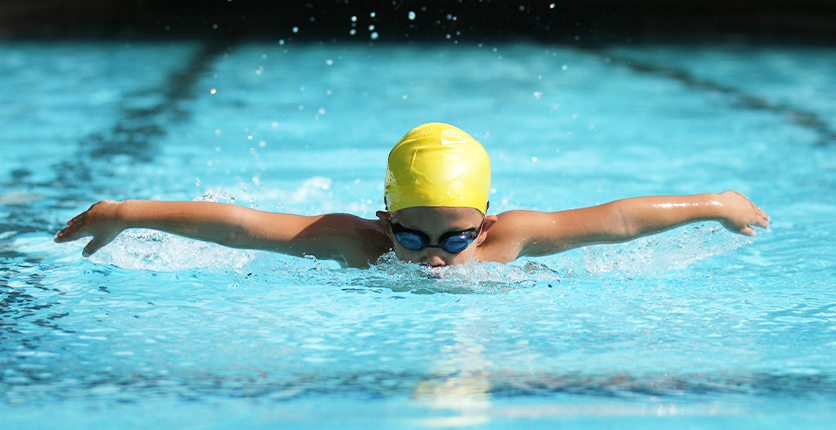
Q: What are the main advantages of good technique and stamina when swimming long distance?
Emir: If you have a good swimming technique, as well as the stamina to swim for a long distance, you’ll be able to maintain an ideal swimming pace for longer and won’t tire too easily.
Additionally, good technique and stamina help to minimise your risk of musculoskeletal injuries and respiratory complications, which can sometimes occur when you’re swimming for a considerable distance or length of time.
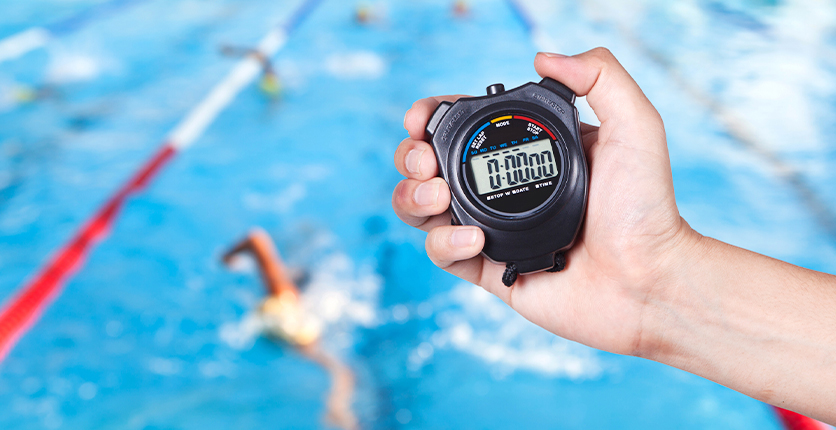
Q: Do you have any tips for improving stamina in the water?
Emir: Here are three:
Adopt a training regime. A weekly training plan will allow you to practise and improve not only your swim techniques, but also your musculoskeletal fitness.
Train progressively. Gradually increase the number of days and hours you swim. With more time in the pool, short intense workouts and supplementary swim training drills, your stamina is likely to improve.
Do other cardiovascular exercises. Pick up other forms of aerobic training, such as jogging in the park, power walking, cycling, skipping rope at home, or running up and down flights of stairs. Cardiovascular exercise gets your heart pumping, strengthens your lungs and helps build your endurance over time. Remember to warm up before your workout and to cool down after.
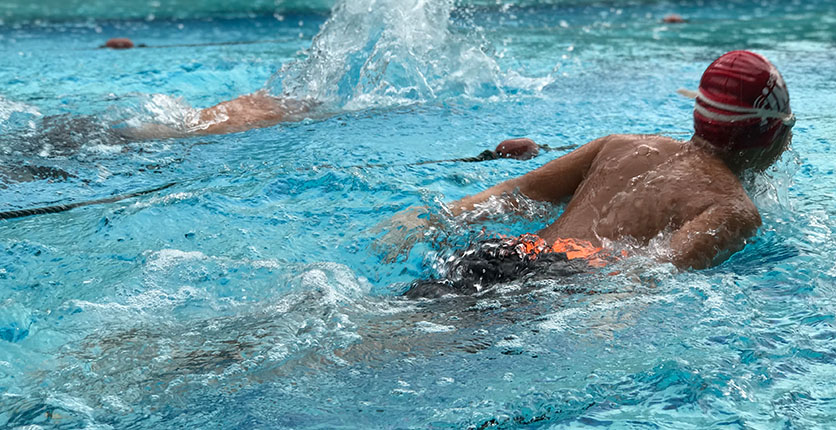
Q: How do you stay focused in the water when you’re swimming long-distance?
Jianhao: You can maintain your focus by keeping yourself engaged with self-talk and being mindful of the training time interval for each and every lap.
Self-talk dictates your actions and the mindset with which you accomplish a task. It’s important to keep thinking positively as you execute the techniques and to encourage yourself to meet your time interval targets for every lap.
If you set goals and targets, you’ll find yourself far more engaged when swimming multiple laps.
Get more tips from FINS on how to train and prepare for long distance swimming here.
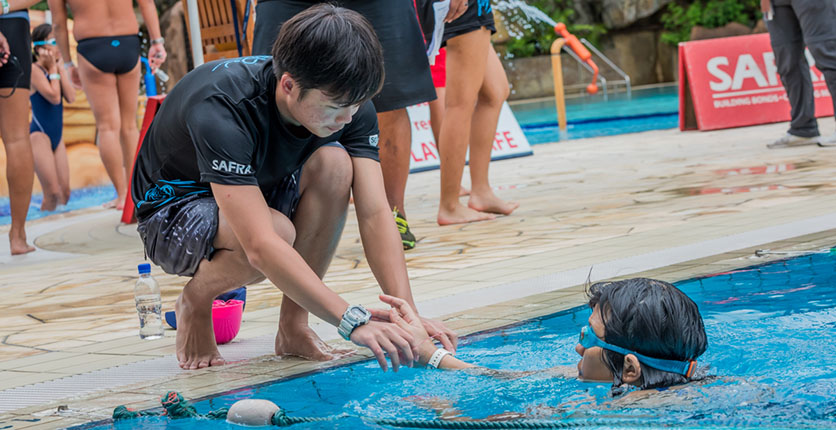
Q: What are some common problems long-distance swimmers face in the water, and how can they avoid or prevent these problems?
Emir: When you swim long-distance, there may be a tendency for you to lose focus when it comes to your technique. How you move through the water may be affected after a while, which is why it’s important to stay mentally sharp despite the physical fatigue or discomfort, and to engage in self-talk while you swim.
Other problems include injuries like cramps and dislocations. My advice is to listen to your body and work out how much you need to push and pull or whether you should put a few glides in between to give yourself a rest.
Finally, remember to have drinking water at the ready in case you need it. Staying hydrated is essential when you’re swimming for a long period.
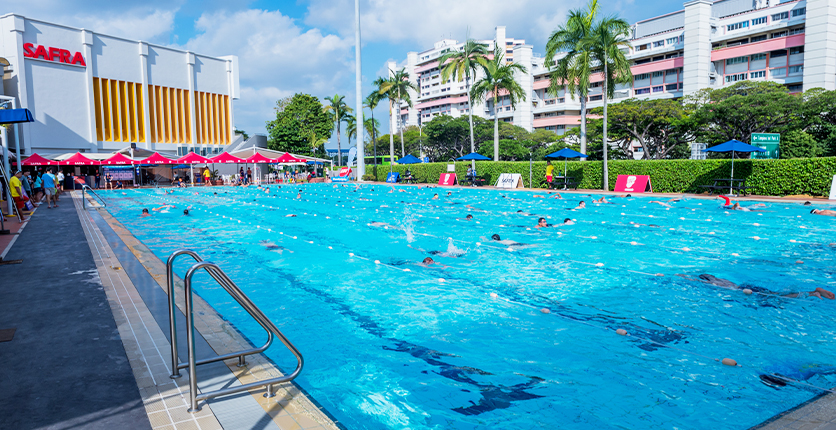
Q: Do you have any tips for perfecting starts and turns when swimming long-distance?
Jianhao: The most important one is to be comfortable from the beginning. So, if you prefer to start by stepping into the pool, go ahead, rather than jeopardise your morale with a wrongly executed plunge. Tumble turns are great to chase time, but remember that you need to feel comfortable doing them, because wrongly executed tumble turns can cause even more delays.
Train at SAFRA’s newest and first sheltered swimming pool at SAFRA Choa Chu Kang! Find out what else you can do there.
Swim for mental health support at SAFRA Swim for Hope 2023
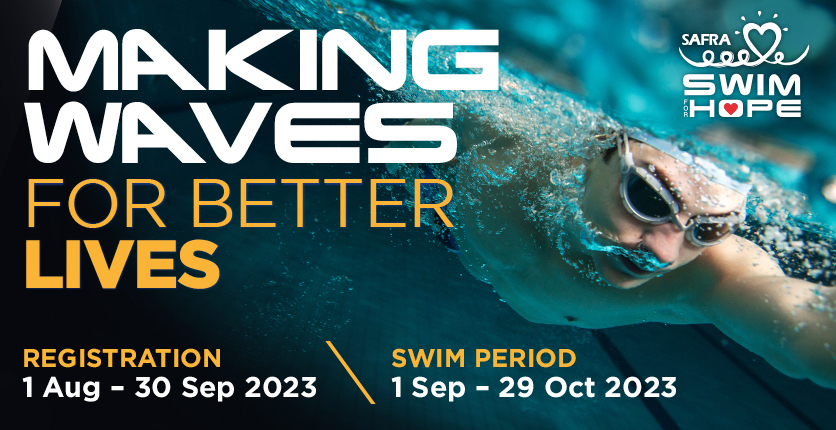
Introduced in 2011 by SAFRA Tampines, SAFRA Swim for Hope provides an opportunity for Operationally Ready National Serviceman and their families to contribute to charitable causes, while promoting fitness and bonding through swimming.
The event adopts various charities each year to raise funds to help the needy and has benefitted more than 15 charity organisations such as the Autism Resource Centre, Cerebral Palsy Alliance Singapore, and the Down Syndrome Association.
For the 13th edition this year, the event aims to support individuals who are recovering or suffering from mental health struggles, to improve their quality of life. This year’s fundraising target is $250,000.
The event includes three categories:
Families for Life: One Parent and one child (6-12 years old) with the option to add up to two more people, Open Individual (13 and above) and Team (minimum five people to form a team).
Distances vary: 1km and 5km for Families for Life; 1km, 15km and 55km for Open Individual; and 250km for Team.
Registration fees start at $22.
Registration period: 1 Aug to 30 Sept 2023
Swim period: 1 Sept to 29 Oct 2023
Fundraising period: 1 Aug to 29 Oct 2023
For more information and to register, go to safras4h.sg.
Save more with SAFRA! Enjoy special deals and discounts on dining, shopping, entertainment, travel, fitness and more from over 1,500 merchant outlets islandwide. Sign up or renew your SAFRA membership for three years at the price of 1 year ($43.20 inclusive of GST)! Plus, get your spouse and children on board to enjoy the same privileges too – 1st dependent pays $5.40/year, and it’s free for the 2nd dependent onwards. Visit safra.sg/savemore for more details.
Want more articles like this, and other lifestyle content right in your inbox? Download the new SAFRA mobile app and opt in for the eNSman Newsletter – you don’t need to be a SAFRA member to subscribe – and never miss another story!
